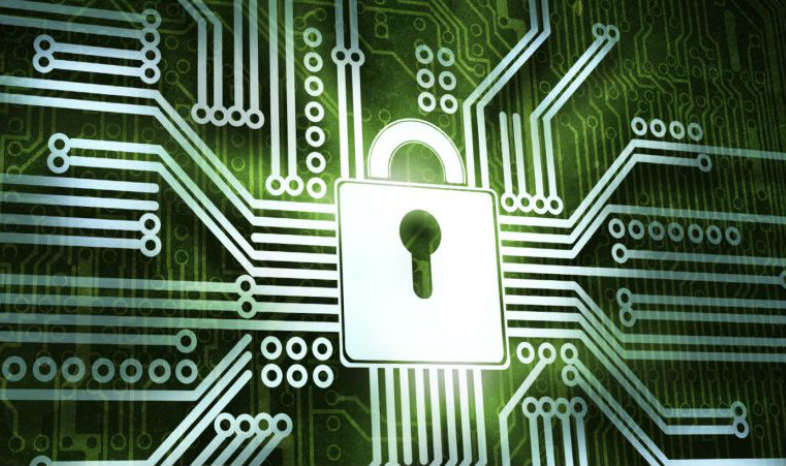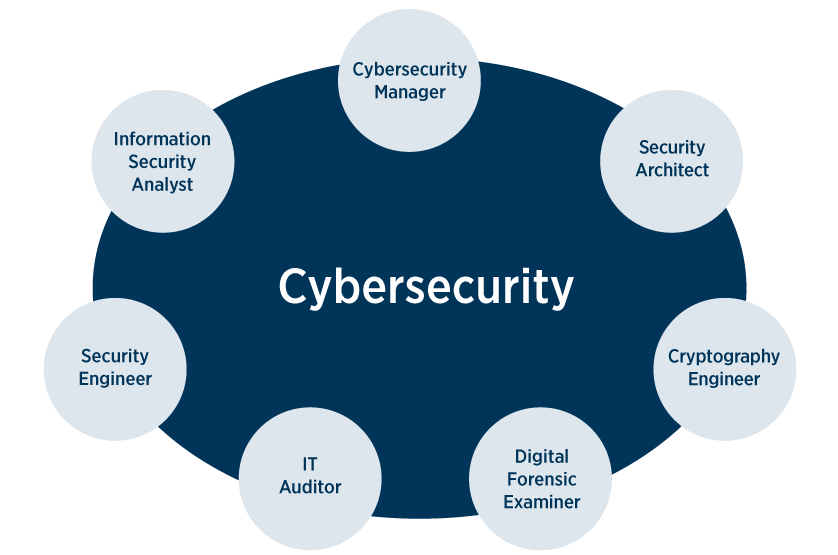As technology continues to advance and more businesses shift their operations online, the need for strong cyber security measures has become increasingly apparent. With cyber attacks becoming more frequent and sophisticated, it is crucial for organizations to have skilled professionals who can protect their digital assets.
Toc
This is where cyber security online programs come in. These programs provide IT professionals with the necessary knowledge and skills to identify, prevent, and respond to cyber threats. In this document, we will explore the benefits of these programs and how they can help unlock your potential as a cyber security professional.
Introduction to Cyber Security Online Programs

In our increasingly digital world, the importance of cybersecurity cannot be overstated. Cyber threats are growing in complexity and frequency, putting businesses, governments, and individuals at risk. For IT professionals, staying ahead of these threats is crucial, and one of the best ways to do so is by enrolling in a reputable cyber security online program.
What is Cyber Security
Cyber security, often referred to as information security, is the practice of protecting systems, networks, and programs from digital attacks. These attacks are usually aimed at accessing, changing, or destroying sensitive information, extorting money from users, or interrupting normal business processes. Implementing effective cybersecurity measures is particularly challenging today because there are more devices than people, and attackers are becoming more innovative.
Cyber security encompasses a range of disciplines, including network security, application security, information security, and operational security. Each area focuses on different aspects of protecting digital assets and ensuring the integrity of data. As cyber threats evolve, so too must the strategies used to combat them, making continuous education and training vital for IT professionals. Online cyber security programs are designed to address this need by offering up-to-date, flexible learning opportunities that cater to various career stages and ambitions.
Understanding Cyber Security Online Programs
Cyber security online programs are educational courses or degree programs that focus on training individuals in the field of cybersecurity. These programs usually cover topics such as network security, data protection, risk management, and ethical hacking. They are offered by universities, colleges, and online learning platforms and can range from short certificate courses to full-fledged degree programs.
One of the main advantages of online cyber security programs is their flexibility. They allow students to learn at their own pace, which is particularly beneficial for working professionals who may not have the time to attend traditional on-campus classes. Additionally, many online programs offer a variety of specializations, allowing students to tailor their education to their specific career goals.
The Growing Demand for Cyber Security Professionals
The demand for cybersecurity professionals is soaring, driven by the rise in cyber-attacks and data breaches. According to Cybersecurity Ventures, there will be 3.5 million unfilled cybersecurity positions globally by 2021. This gap offers a tremendous opportunity for IT professionals looking to advance their careers. With a strong foundation in cyber security, individuals can pursue various roles such as network security analyst, information security manager, or cyber threat intelligence analyst.
Benefits of Cyber Security Online Programs

Personalized Learning Experience
One of the key benefits of cyber security online programs is the ability to personalize your learning experience. Unlike traditional classroom settings, online programs often offer adaptive learning technologies and a variety of resources, such as video lectures, interactive simulations, and virtual labs. This allows students to engage with the material in ways that suit their learning preferences and needs. Furthermore, many online programs provide access to forums and discussion groups where students can connect with peers and instructors, fostering a collaborative learning environment despite the physical distance.
Cost-Effectiveness
Another significant advantage of online cyber security programs is their cost-effectiveness. Traditional degree programs can be expensive when you factor in tuition, books, and sometimes even room and board. Online programs, on the other hand, often come at a fraction of the cost and eliminate additional expenses such as commuting and accommodation. Additionally, many online programs offer financial aid, scholarships, and payment plans to make education more accessible to a broader range of students.
Staying Current with Industry Trends
The field of cyber security is dynamic, with new threats emerging constantly. Staying updated with the latest trends, tools, and techniques is crucial. Online cyber security programs are typically designed to be responsive to these changes, offering the most current and relevant content. Courses are regularly updated to reflect the latest in threat landscapes, regulatory requirements, and technological advancements. This enables students to gain knowledge that is directly applicable to the current job market and ensures that they remain competitive.
Networking Opportunities
Online programs might lack the immediate face-to-face interactions of traditional educational environments, but they compensate by offering unique networking opportunities. Many online cyber security programs partner with industry organizations and professionals, providing students with valuable connections that can lead to internships, job placements, and professional mentorship. Webinars, virtual career fairs, and alumni networks are common features, helping students to build a professional network that spans the globe.
Flexibility and Balance
For many professionals, balancing work, life, and education can be a daunting task. Cyber security online programs offer the flexibility needed to manage these responsibilities effectively. Students can log in and complete coursework whenever it fits into their schedules, allowing them to continue working full-time or handle other commitments while advancing their education. This level of flexibility is particularly appealing for individuals looking to transition into a cyber security role from a different career path without needing to take a significant time off work to study.
Comparison of Well-Known Cyber Security Online Programs

As the demand for cyber security professionals continues to grow, an increasing number of universities and online learning platforms are offering cyber security programs. Some of the more well-known ones include:
- SANS Technology Institute: SANS offers a variety of online degree and certificate programs that cover topics such as digital forensics, penetration testing, and security management.
- University of Maryland Global Campus (UMGC): UMGC offers a range of online degree and certificate programs, including a popular Master’s in Cybersecurity program.
- Coursera: Coursera offers a variety of online courses and specializations in cyber security from top universities such as Stanford, University of Maryland, and IBM.
- CyberVista: CyberVista offers industry-specific training and certification preparation through their online platform. They also have partnerships with organizations such as CompTIA and (ISC)².
- Saylor Academy: Saylor Academy offers free, online courses in cyber security fundamentals and advanced topics such as cryptography and network security.
SANS Technology Institute
SANS Technology Institute is highly regarded for its hands-on approach to cyber security education. Their programs are designed by industry experts and cover a comprehensive range of topics, from digital forensics and incident response to penetration testing and cyber defense. The institute also places a strong emphasis on practical skills, ensuring that students are well-prepared to tackle real-world cyber security challenges.
University of Maryland Global Campus (UMGC)
UMGC is another prominent name in cyber security education. Their online Master’s in Cybersecurity program is particularly well-known for its rigorous curriculum and strong industry connections. The program covers essential areas such as cybersecurity policy, digital forensics, and network security. UMGC also offers specialized certifications and courses that cater to specific areas of interest within the field, making it a versatile option for professionals at different stages of their careers.
Coursera
Coursera provides access to a wide range of cyber security courses and specializations from top universities and organizations. These courses are usually more flexible, allowing students to learn at their own pace. Coursera’s offerings include courses on foundational topics like network security and advanced subjects such as artificial intelligence in cybersecurity. The platform also offers specializations and professional certificates that can enhance a student’s resume and professional standing.
CyberVista
CyberVista focuses on industry-specific training and certification preparation. Their online platform offers tailored learning experiences for professionals looking to gain certifications from recognized bodies such as CompTIA and (ISC)². CyberVista’s training programs are designed to be highly interactive and are updated regularly to keep pace with the latest trends and threats in the cybersecurity landscape.
Saylor Academy
Saylor Academy offers a more financially accessible route to cyber security education, providing free online courses. These courses cover both fundamental and advanced topics, including cryptography, network security, and ethical hacking. While Saylor Academy’s courses might not come with formal accreditation, they provide a solid foundation for self-motivated learners who want to gain knowledge without the financial burden of traditional educational programs.
Factors to Consider When Choosing an Online Cyber Security Program

Selecting the right online cyber security program requires careful consideration of several factors to ensure it aligns with your career goals, learning style, and personal circumstances. Key factors to consider include:
Accreditation and Reputation
The accreditation and reputation of an online cyber security program play crucial roles in the value of the education you receive. An accredited program meets established standards of quality and rigor, which is especially important in a field as detailed and demanding as cyber security. Look for programs accredited by relevant educational bodies or industry-specific organizations. Additionally, investigate the program’s reputation within the industry. Reading reviews from alumni, consulting industry rankings, and checking if the program’s graduates hold influential positions can provide insight into the program’s effectiveness and respectability.
Curriculum and Course Content
Another essential factor is the curriculum and specific course content offered by the program. Ensure that the program covers a wide range of essential topics such as network security, encryption, cyber law, ethical hacking, and digital forensics. The rapidly evolving nature of cyber security requires continuous updating of course material; therefore, programs that incorporate the latest trends and emerging technologies in their curriculum are more beneficial. Practical, hands-on experience offered through labs or real-world projects is a significant advantage, providing students with the skills and confidence to handle actual cyber security challenges.
Faculty Expertise
The expertise and experience of the faculty can significantly impact the quality of education. Look for programs taught by practitioners with real-world experience in cyber security. Faculty members who have worked in the field bring valuable insights and practical knowledge that purely academic instructors might lack. Additionally, instructors who are active researchers or involved in cyber security communities can provide students with up-to-date information and networking opportunities.
Flexibility and Delivery Format
Since many students enrolling in online programs are working professionals, flexibility is a vital factor. Programs that offer asynchronous classes – where you can access lectures and assignments at your convenience – are beneficial for managing work, study, and personal commitments. It’s also essential to consider the delivery format of the course material. Engaging and interactive formats such as video lectures, live webinars, forums, and virtual labs can enhance the learning experience, making complex cyber security concepts more understandable and engaging.
Support Services
Robust support services can greatly enhance the learning experience in an online program. Services such as academic advising, career counseling, technical support, and access to online libraries and resources are vital. Additionally, opportunities for peer interaction through discussion boards, group projects, and networking events can help students feel more connected and supported.
Cost and Financial Aid
Lastly, consider the cost of the program and the availability of financial aid. The cost can vary significantly between programs, so it’s essential to evaluate if the investment aligns with your budget and career goals. Some programs might offer scholarships, grants, or payment plans to make the education more affordable. Additionally, examine the potential return on investment – some programs might have higher upfront costs but offer better job placement rates, higher earning potential, or more prestigious qualifications.
Future Trends in Cyber Security Education
As the cyber landscape evolves, so too does the field of cyber security education. Keeping pace with emerging threats and technologies is crucial for educational institutions and training programs. One of the significant trends in cyber security education is the increased emphasis on experiential learning. This includes the use of virtual labs, cyber ranges, and simulated attack environments, which allow students to practice defending against real-world threats in a controlled setting. These hands-on experiences are invaluable for reinforcing theoretical knowledge and building practical skills.
Another trend is the growing integration of artificial intelligence (AI) and machine learning (ML) into cyber security curricula. As AI and ML play increasingly prominent roles in identifying and mitigating cyber threats, understanding these technologies becomes essential for modern cyber security professionals. Educational programs are beginning to include more courses focused on these topics, ensuring students are proficient in the latest tools and methodologies.
Remote learning technologies are also advancing, making cyber security education more accessible than ever before. Enhanced virtual collaboration tools, real-time interactive sessions, and sophisticated online assessment methods are transforming the traditional online classroom into a more dynamic and engaging learning environment. The use of augmented reality (AR) and virtual reality (VR) provides immersive experiences that can simulate complex cyber attack scenarios, further enriching the educational experience.
Moreover, there is a trend towards micro-credentialing and modular learning paths. These allow learners to acquire specific skills and knowledge in a shorter time frame, which can be particularly appealing for working professionals looking to upskill or pivot into cyber security roles. These micro-credentials are often stackable, enabling students to build towards a comprehensive qualification over time.
Lastly, there is a growing recognition of the importance of soft skills in cyber security roles. Programs are increasingly incorporating training in areas such as communication, critical thinking, and leadership, recognizing that technical proficiency alone is not sufficient. Cyber security professionals must be able to articulate complex issues to non-technical stakeholders, lead teams, and make strategic decisions under pressure.
By keeping abreast of these trends, both aspiring and current cyber security professionals can ensure they remain at the forefront of the industry, equipped with the knowledge and skills necessary to combat the ever-evolving cyber threats.












